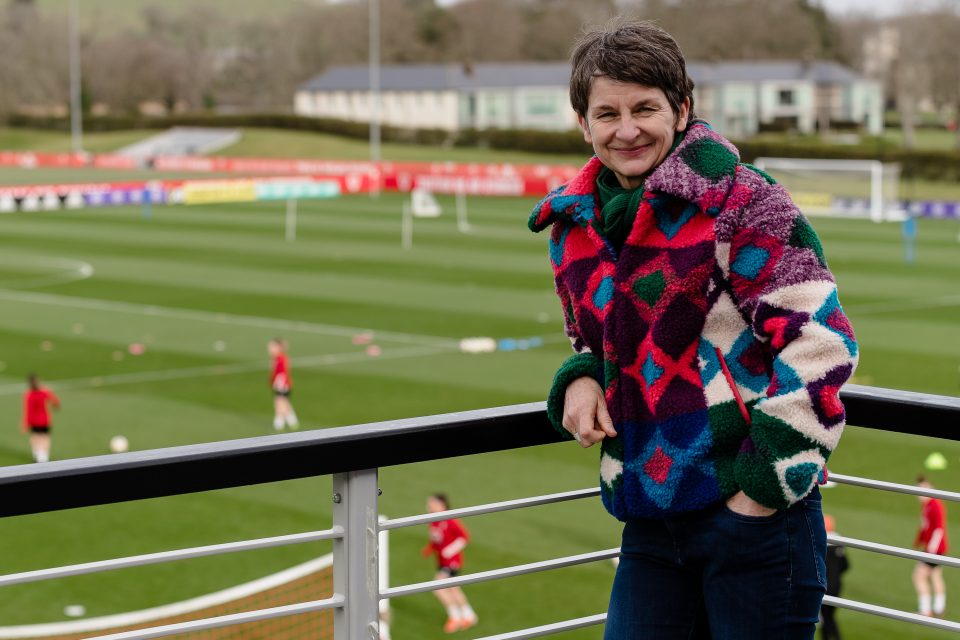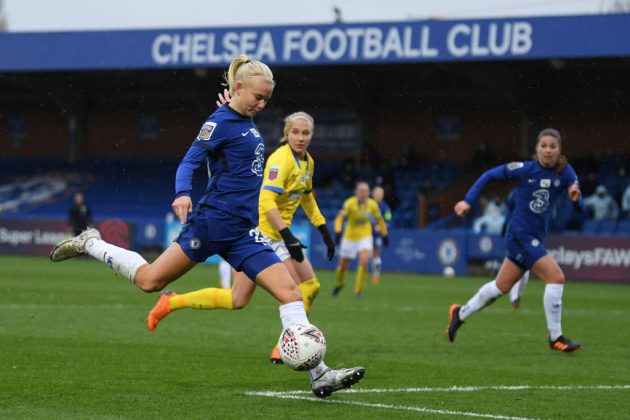Laura McAllister interview: Former Wales captain and Fifa Council candidate on women’s football, greedy clubs and moderniser Infantino

Wales have come to be a force to be reckoned with in international football.
Their men’s team, led by galactico Gareth Bale, have qualified for successive European Championships for the first time, while their women have also continued their steady rise up Fifa’s world rankings.
Now Welshwoman Laura McAllister is aiming to make a similar impact, only away from the pitch in the game’s corridors of power.
McAllister, a former captain of Wales women turned professor of politics and sports governance professional, is standing for election to the Fifa Council, arguably football’s highest decision-making body.
To be anointed Uefa’s women’s representative to the council, however, she must unseat Evelina Christillin, the Italian incumbent with ties to the Agnelli family, which owns Juventus and is an influential voice in the European game, in a vote on Tuesday.
“Somebody said to me that if I were to win the election it would be one of the biggest sporting governance earthquakes,” McAllister tells City A.M.
McAllister’s impeccable credentials
On paper, the 56-year-old from Bridgend has impeccable credentials that reflect a life spent with one foot in football and the other in politics.
McAllister is Professor of Governance and Public Policy at Cardiff University, a former candidate for Plaid Cymru and was awarded a CBE for services to sport.
She turned out for Millwall Lionesses while studying at London School of Economics before returning to Cardiff City, the club her grandfather took her to watch as a toddler, where she played for more than a decade and became Wales captain.
More recently, McAllister was chair of Sport Wales, a board member of UK Sport and is currently deputy chair of Uefa’s women’s football committee.
Given that her opponent Christillin’s background is in winter sports, McAllister says she is “self-evidently the football candidate”.
“I don’t think there are many people out there who have lived their lives through football the way I have.”

That expertise and a commitment to driving development of the women’s game has won her the support of leading players including Chelsea stars Pernille Harder and Magda Eriksson.
“We don’t just need women on governing bodies and councils; we need women who know football,” she says.
“The reason I’ve had so many endorsements is because they know that women players need a voice at Fifa as well.”
Investing in women’s game ‘makes business sense’
If elected, McAllister, has vowed to push for greater investment in women’s football.
She is in favour of selling the rights to the women’s World Cup separately to the men’s tournament and cites the women’s game in England growing four times faster than the men’s as evidence of opportunity.
“A smart business person would look at where there’s headroom for growth. That comes in the women’s game at the moment so I’d hope there would be that enthusiasm for investing cleverly in women and girls.”
She adds: “I’m not going to Fifa to sit on my hands. It would be about doing as much work as I can to improve the game for everybody.”
Other key pillars of her manifesto include ensuring competitive balance and improving diversity.
The former issue is particularly topical, the election coming as Uefa stares down attempts by the most powerful clubs to wrestle more control and money from the Champions League.
“I think it’s really important that the Uefa family sticks together on this,” she says.
‘FAs are lifeblood of football – not clubs’
McAllister supports Uefa president Aleksander Ceferin’s attempts to prevent clubs making another power grab – and gobbling up funds needed by national associations to nurture the game.
“We’ve got to look at developing all Uefa and Fifa competitions, but we’ve got to do it in a way that doesn’t allow the very, very rich to get richer at the expense of not just the poorer countries but those in the middle as well.
“The national associations of Uefa are the lifeblood of football – not the clubs, by the way, and certainly not the top clubs. It is they who invest in facilities, coaching, grassroots, girls and disabled football.”
McAllister, a former board member of Stonewall, says football needs to diversify its governance.
“We need more women involved and more black faces around the table so we can talk about racism with expertise.
“We need to give the anti-racism campaigns a big push because clearly – it’s not football’s fault – they haven’t had as much impact as we’d like.”
Infantino taking Fifa ‘in right direction’
McAllister appears to be progressive and principled, so what, you might ask, is she doing at Fifa, an organisation still tainted by scandals of the recent past?
She says it has improved since long-serving president Sepp Blatter was ousted in 2015 and insists that his successor Gianni Infantino and Uefa counterpart Ceferin are modernisers.
“I always look at where an organisation is going rather than where it has been and I have to say the leadership of Gianni Infantino reassures me that it is going in the right direction.
“I appreciate that, gosh, it couldn’t have been much worse for Fifa six years ago but things are changing. If I do get elected I want to be part of that reform.”

McAllister has attempted to meet as many of the 55 Uefa member associations as possible to press her case ahead of next week’s vote.
She has also published a manifesto – seen as an unusual step in the opaque world of sport governing body elections. Christillin, she says, has not taken those steps.
“To be perfectly honest I don’t know my opponent because she hasn’t been in touch with many of the nations around the election, so I’m not going to criticise her in any way.”
Why McAllister won’t quit even if she loses vote
She adds: “It’s a difficult election to predict – sports elections always are – but this one particularly.
“If you’d asked at the beginning of the campaign what our chances were I think a lot of people would have said very slight.
“But as the campaign has progressed we’ve made up a lot of ground and we’ve got a real momentum behind us now.”
Whatever the outcome at Uefa’s congress in Montreux, Switzerland, on Tuesday, McAllister won’t be chased out of football.
The former sweeper, who still plays with former team-mates on Thursdays, says: “I’m going to stay involved in the game because this isn’t about me, it’s about the sport.
“I want other women to follow in my footsteps. If we have to lose a few elections to get there, so be it; that’s life.
“But I’m not going to give up. I know how important football is and what joy it can bring to people.”
